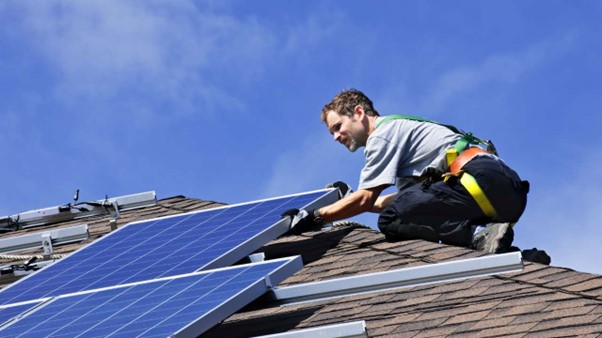Solar panel installation is the process of installing solar panels on open surfaces like rooftops to absorb solar energy and transform it into electricity. There are many procedures to be followed and completed before installing a solar panel. For instance, site assessment, collecting the necessary permits, preparing the installation site, installing mounting equipment, and much more. Though many people choose to install solar panels on their own, we always recommend seeking professional help because solar panel installation has specific technical requirements. If you are looking for solar shade suppliers in UAE, then this is a must-read. But before that, read on to know what goes into solar panel installation, factors, etc.
Factors to Consider Before Installing Solar Panels
Before we move to the solar panel installation process, it is necessary to consider a few factors that help you ensure a successful and efficient setup. Begin by evaluating your energy needs and understanding how much electricity you consume. This will help determine the size and number of solar panels required. Moreover, check your roof’s suitability by checking its orientation, tilt, and shading. You would also require to look into local regulations and permits that are necessary for installation and research the financial return on investment to understand the long-term benefits.
What are the different types of Solar Panel Mounts?
You will find many mounting options available for solar panels, based on your property and preferences. The two most common types are roof-mounted and ground-mounted systems. Roof-mounted systems are ideal for properties with suitable roofs, maximizing space utilization. Ground-mounted systems, on the other hand, are suitable for properties with ample land or roof constraints. Another option is tracking mounts, which allow solar panels to follow the sun’s path throughout the day, maximizing energy production.
Step-by-Step Guide on How to Install Solar Panels
Installing solar panels requires careful planning and execution. Here is a step-by-step guide to help you through the process:
- Site Assessment and Design: Analyze your property, taking into account elements like the state of the roof, the amount of space available, and solar exposure. Design something that maximizes energy production.
- Acquiring Relevant Permits and Approvals: Do your research and contact local governments and utility providers to obtain the necessary permits and approvals.
- Setting Up the Installation Area: Make sure there are no barriers or debris on the roof or ground wherever the solar panels will be put.
- Racking and mounting equipment installation: Set up the racking and mounting hardware necessary to keep the solar panels firmly in position.
- Electrical Wiring and Connections: Route the electrical wiring and make the necessary connections to join the solar panels to the electrical system.
- Mounting the Solar Panels: Ensure that the solar panels are securely fastened to the racking or mounting apparatus.
- Performing Final Adjustments and Securing the Panels: Verify the panels’ placement and alignment once again, then secure them firmly and make any required modifications.
- Attaching to the Electrical System: Integrate the solar panels with the grid or your home’s power supply by linking them to the electrical system.
- Installing and Testing the System: Carefully check that the solar panels are operating correctly and effectively.
How Long Does It Take to Install Solar Panels?
The length of the installation process can vary based on a number of variables, including the project’s complexity, the system’s size, and the resources that are available. Residential solar panel installations often take a few days to a couple of weeks. Commercial installations could take longer because of their bigger size. It is advisable to speak with a seasoned installer who can give you a more precise timeline based on the details of your individual job.
Can I Install Solar Panels Myself? When Should I Call for Professional Help?
While some individuals with experience and knowledge in electrical work may consider installing solar panels themselves, it is generally recommended to seek professional help. Solar panel installation involves technical expertise, electrical knowledge, and adherence to safety protocols. A professional installer will ensure the system is correctly and safely installed, maximizing its efficiency and longevity. It is especially important to call for professional help when dealing with complex installations, grid connections, metering requirements, or if you are uncertain about the process.
Conclusion
Using solar energy and lowering your carbon footprint are both feasible and affordable options when installing solar panels. You may start your road toward a successful solar panel installation by taking into account the aforementioned criteria, comprehending the many types of solar panel mounts available, according to the step-by-step installation guide, and being aware of when to seek professional assistance. Take use of renewable energy sources to help the environment and yourself.
Bear in mind that when installing solar panels, it’s important to seek advice from experienced installers and abide by local laws and safety standards.
We at Gulf Fab Shade Engineering LLC are the solar frame manufacturers in UAE. We are the industry leaders and provide you with various products that range from car parking shades to awnings to solar panels to swimming pool shades. Our quality, price, and customer support are what make us one of the top solar shade suppliers in the UAE. We ensure that each product is prepared as per the client’s customization and requirements. Do you have any questions in mind? Feel free to call us at +97165360629.
